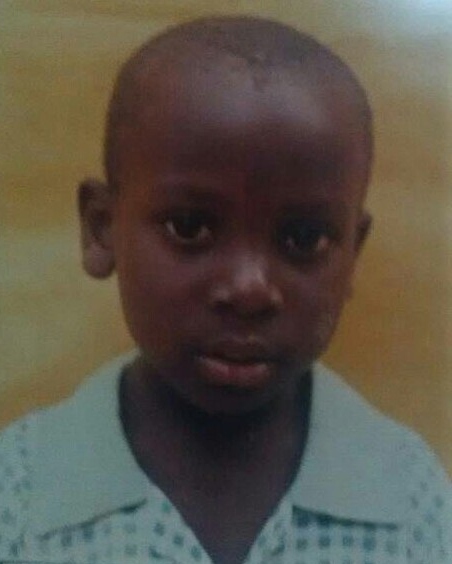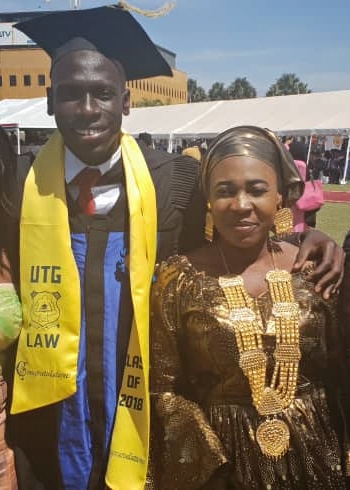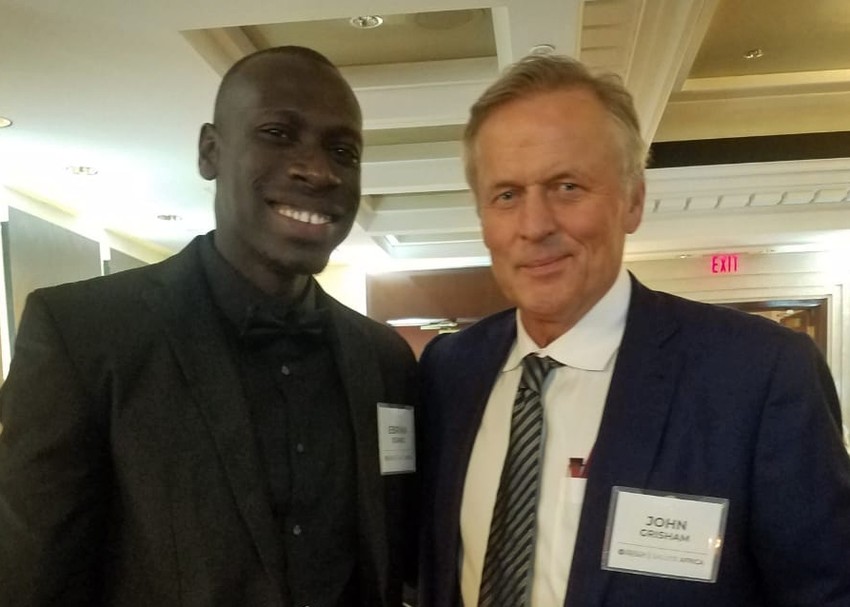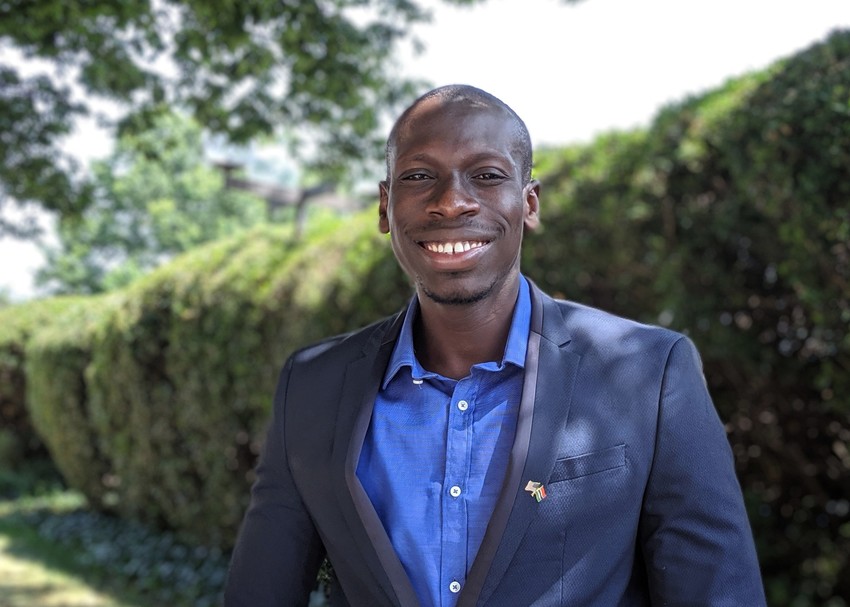Site will be
unavailable for maintenance from June. 4, 11:30 p.m., to June 5, 12:30 a.m. ET. Thank you for your
patience!
How Sponsorship Helped Ebrima Sonko Go From Living in Poverty to Becoming a Human Rights Champion
Posted on 11/13/2019
"There is More to My Story": How Sponsorship Helped Ebrima Sonko Go From Living in Poverty to Becoming a Human Rights Champion

Ebrima Sonko says his mom knew he was special from the very beginning – he had an insatiable thirst for learning and reading, and he was naturally sharp. And Sonko had a hunch about himself, too. “I always had a feeling that there is more to my story than where I am now,” he says.
The only obstacle in his path? The costs of education.
When Sonko was growing up in Brikama, The Gambia, his dad sold secondhand clothes, and his mom, Mariama, took care of Sonko and his siblings. But sometimes the income wasn’t enough, and they often struggled to afford even the basic things their children needed. So Mariama enrolled her son in ChildFund’s child sponsorship program.
Child sponsorship paves the way out of poverty – and education seals the deal
From that day on, with the support of two sponsors (at different times in his life), Anna and Susanna, many of the turning points in Sonko’s education involved ChildFund. For example, when he couldn’t afford his exam fees, Sonko and his mom knocked on every door they could think of and asked every relative they could find but couldn’t come up with the money. Finally, they went to ChildFund, who helped him out. Or when Sonko didn’t know how he would pay for university but knew he needed to go, so he applied, with no plan and a whole lot of faith. At the time, Mariama had about $700 saved – she paid all of that toward his tuition, but there was still a gap. So the child sponsorship program covered the rest of Sonko’s first year.
“ChildFund is a support system for people who are left out,” Sonko says. “People didn’t forget me.”

By the time Sonko graduated (with honors) from the University of The Gambia in 2018, he’d gathered an impressive number of experiences and accolades under his belt. If I listed them all you might get dizzy, so here are just a few highlights: He was head boy in primary school. He participated in community groups that helped people learn about sexually transmitted infections and fight against female genital mutilation (which became outlawed in the country in 2015). He completed a 9-month program at the Management Development Institute. He helped form the Gambia’s first Commission for Political Debates. And he was appointed secretary general at his university, where he led projects to improve university facilities, changed the school’s constitution and planned a students’ week focused on combating climate change.

Fighting for human rights in The Gambia
Fast forward to 2019 – this is what Sonko looks like now at age 25, during a trip to the United States to participate in the Mandela Washington Fellowship for Young African Leaders. He was one of 700 fellows, chosen from almost 60,000 applicants, who traveled to the U.S. to participate in leadership training and networking events to strengthen connections among the U.S. and African nations.
Sonko’s favorite moment from this experience was meeting author John Grisham (above), who funded one of the dinners for the Fellowship. Sonko and Grisham sat together during the meal and talked about U.S. history, politics, and human rights in The Gambia. For Sonko, spending time with Grisham was inspiring on many levels. Grisham’s book "The Accuser" is one of the reasons Sonko decided to study law. And beyond that, he gained some wisdom through observation. “What I learned from him,” Sonko says, “is if you want to be smart, do more listening than talking.”

And Sonko’s a man who practices what he preaches. When I had the honor of meeting him in Washington, D.C., on a humid August afternoon after the last day of his fellowship, we walked to an Indian restaurant near his hotel. As I began the interview, he stopped me and said, “Wait, tell me more about yourself first.” He didn’t want to just talk, he wanted to listen, too. We chatted about travel (his favorite spot is the beach) and soccer (he’s a big Manchester United fan), and then Sonko told me his story.
While we spoke, I was struck not only by his measurable achievements, but also by his warmth and his deep-rooted sense of purpose and responsibility. “If you are in a place of influence, look out for other people,” he says. “You have a duty to live up to that.” That’s what so many people in his life – his mom, his sponsors, John Grisham – have done for him, and that’s what he’s doing for so many more. “People remember you for the good you’ve done for them … not for the money, but for the words and actions you take.”
So, what kind of good is up next for Sonko? He’s currently working with the Truth, Reconciliation, and Reparations Commission in The Gambia, a group tasked with investigating human rights violations by the country’s former president. After that 2-year job is finished, he plans to go to graduate school to study law.
It’s clear that Mariama was right – her son is something special. But as Sonko finished the last sips of his mango lassi, I wanted to know: What’s something he feels he’s not very good at?
He laughed. “Sometimes I lose myself in all the things. I’m smart to know my limits,” he says, “but also my potential.”
You can help another child achieve their own potential through our child sponsorship program. Sign up to sponsor a child and support access to education in The Gambia today!
Loading...


